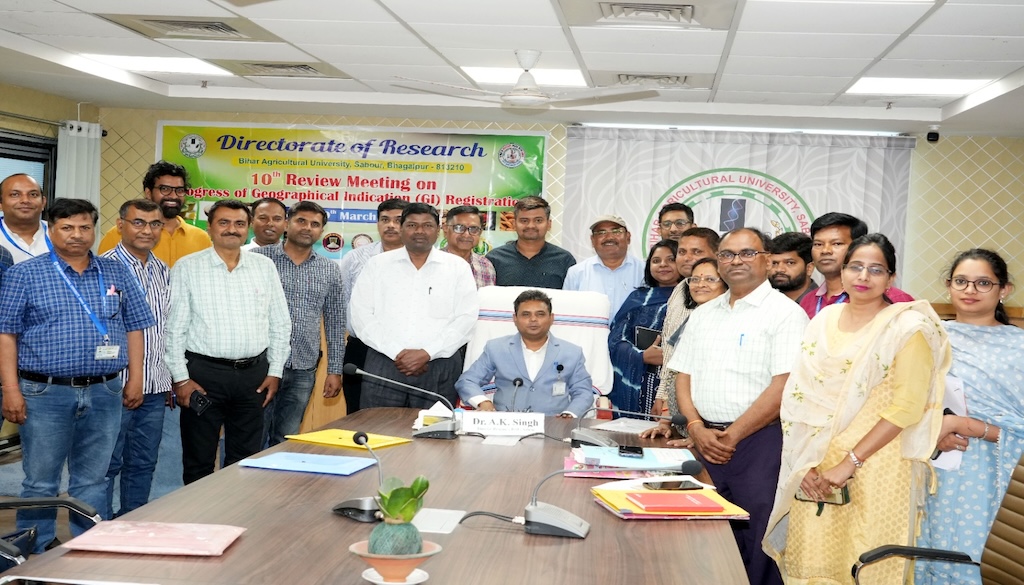Litti-Chokha, Chana Sattu, and Bathua Aam Move Closer to GI Tagging as Bihar Agricultural University Hits GI Target

Sabour: Bihar Agricultural University (BAU), Sabour has met its 2024-25 target for Geographical Indication (GI) registration, marking a significant step towards securing global recognition for the state’s traditional agricultural produce.
At the university’s tenth review meeting on GI registration, held on Saturday, experts and agricultural officials approved three more products—Litti-Chokha, Bihar Chana Sattu, and Bathua Aam (Mango)—for submission to the GI office in Chennai. The meeting was chaired by BAU’s Director of Research, Dr Anil Kumar Singh.
Bihar Moves Towards Becoming a GI Hub
BAU has applied for GI status for 30 products this financial year, with eight—Malbhog Rice, Patna Dudhiya Malda, Bihar Singhara, Sita Sindoor, Hajipur Chinia Kela (Banana), Magahi Thekua, Bihar Tilauri, and Bihar Adhauri—already submitted for GI tagging. With the latest approvals, a total of 11 agricultural products from Bihar are now in the GI registration process.
Dr Singh described the achievement as a major step in establishing Bihar as a hub for GI-certified products. “We are committed to ensuring as many traditional agricultural products of Bihar as possible receive GI tagging. Our next step is to strengthen market access and maximise benefits for farmers,” he said.
Economic Benefits for Farmers
The meeting also set a target to increase the number of registered users of GI-certified products to 1,000, aiming to enhance market recognition and improve farmers’ incomes.
BAU Vice Chancellor Dr D.R. Singh called GI registration a “revolutionary step” that would safeguard Bihar’s agricultural heritage while boosting farmers’ economic prospects. “This initiative will not only protect our rich agricultural history but also establish these products in the global market,” he said.
The GI tagging initiative aligns with Bihar’s broader vision of promoting local farmers, fostering agricultural innovation, and strengthening the rural economy through intellectual property protection. By securing GI status, Bihar’s unique agricultural produce is expected to gain wider national and international recognition, helping to improve livelihoods and cementing the state’s position in global markets.







